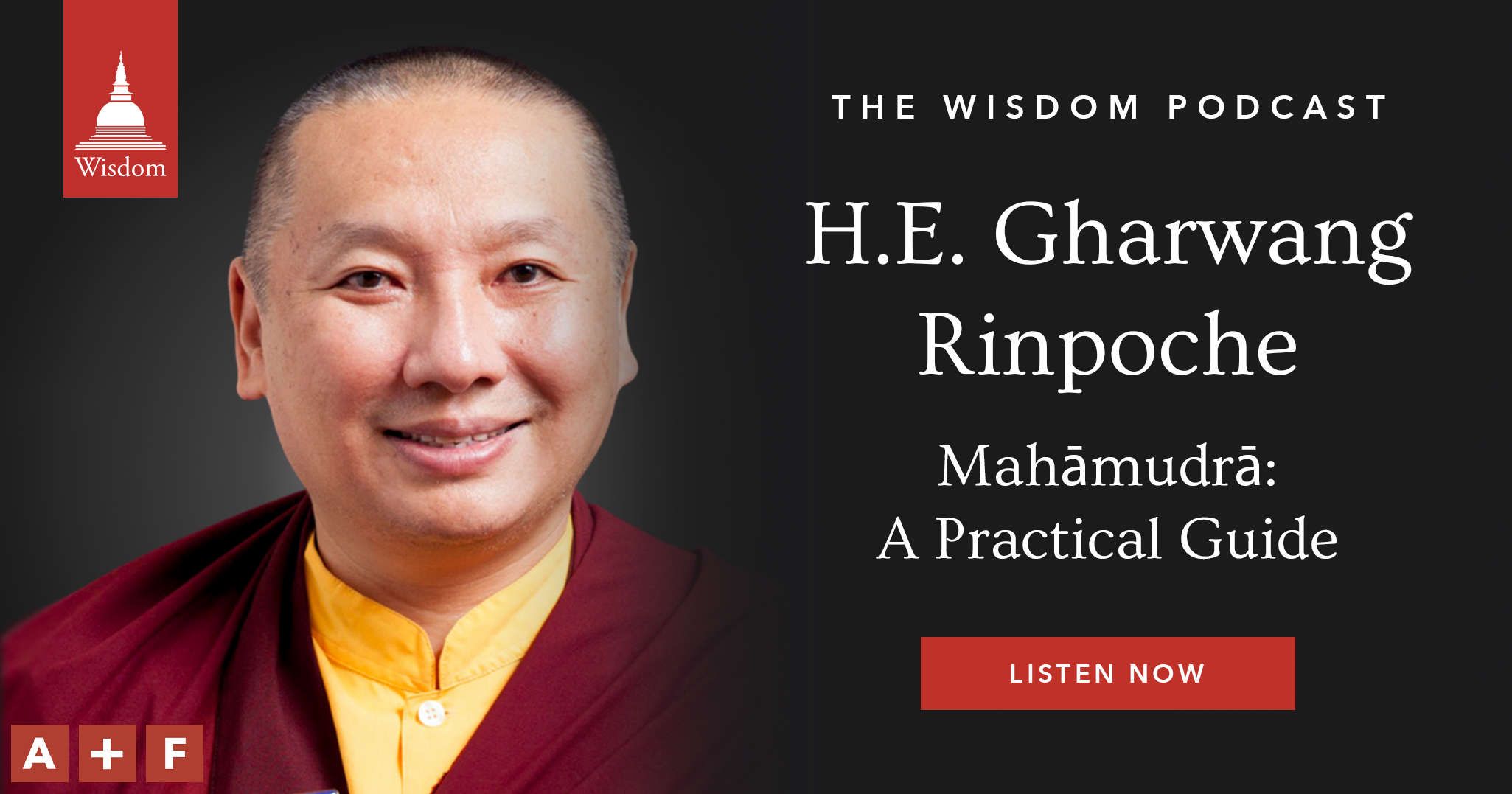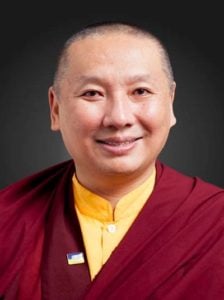
Mahāmudrā: A Practical Guide (#140)
Posted
This episode of the Wisdom Podcast, recorded live as a Wisdom Dharma Chat, features special guest His Eminence the 12th Zurmang Gharwang Rinpoche as he and host Daniel Aitken celebrate the launch of Rinpoche’s most recent book, Mahāmudrā: A Practical Guide. H.E. Gharwang Rinpoche was born into the Sikkimese Royal Court and was recognized by H.H. the 16th Karmapa as the incarnation of the Gharwang Tulku. Rinpoche is the supreme lineage holder of the Whispered Lineage of the Zurmang Kagyu tradition of Tibetan Buddhism. As head of the Zurmang Kagyu School, Rinpoche is the spiritual leader of monasteries and nunneries in Tibet, India, Nepal, and Bhutan.
In this episode, H.E. Gharwang Rinpoche and Daniel discuss
- the story behind the new book and its unique structure;
- a verse that encapsulates the essence of the book’s teachings;
- what it means to tame the mind;
- renunciation in terms of our relationship with others;
- the connection between mahāmudrā and non-attachment;
- defining the word mahāmudrā;
- faith and devotion in mahāmudrā practice;
- and much more.

Remember to subscribe to the Wisdom Podcast for more great conversations on Buddhism, meditation, and mindfulness. And please give us a 5-star rating in Apple Podcasts if you enjoy our show—it’s a great support to us and it helps other people find the podcast. Thank you!
About the Interviewee

His Eminence Zurmang Gharwang Rinpoche was born a son of the Sikkimese Royal Court and was recognized by His Holiness the Sixteenth Karmapa as the twelfth incarnation of the Gharwang Tulku. Rinpoche is the supreme lineage holder of the Whispered Lineage of the Zurmang Kagyu tradition. He teaches around the world. As head of the Zurmang Kagyu School of Tibetan Buddhism, Rinpoche is the spiritual head of thirteen monasteries and one nunnery in Tibet, as well as monasteries and nunneries in India, Nepal, and Bhutan. Rinpoche oversees the spiritual education of the four thousand monks and nuns and approximately fifty thousand followers in the Zurmang Kagyu tradition worldwide.
